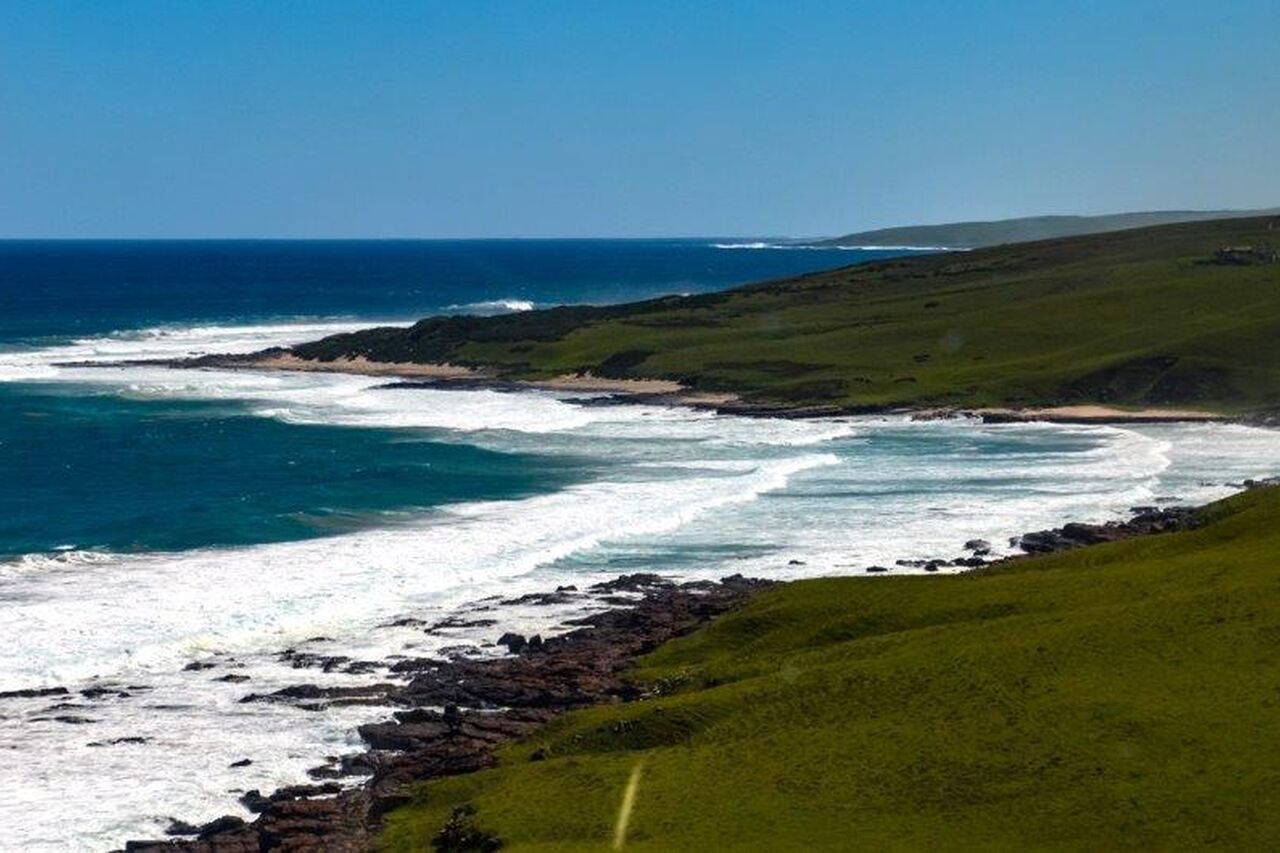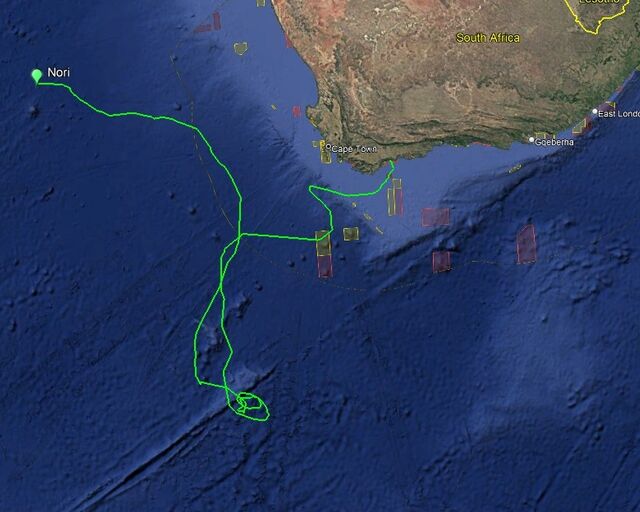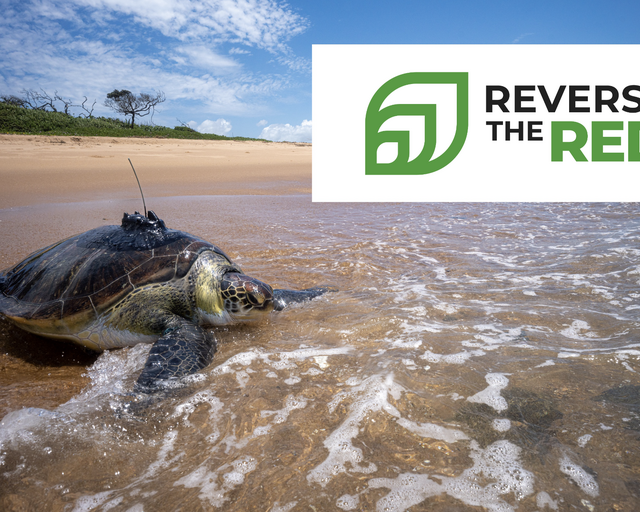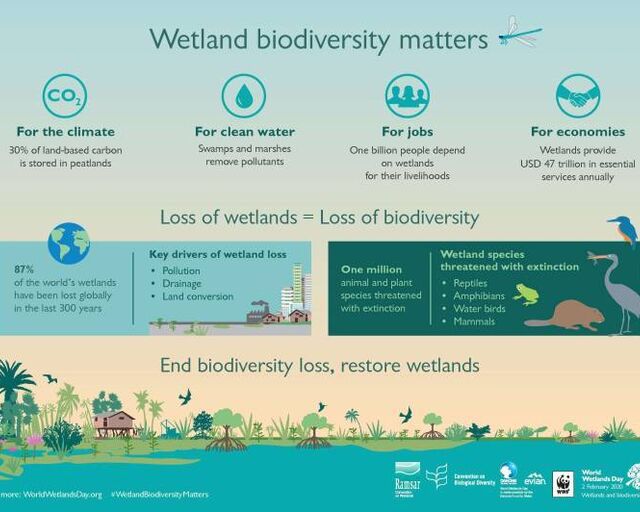The following is adapted from a press statement compiled by SAAMBR Conservation Strategist Dr Judy Mann on behalf of the MPA Day Alliance, a collective of like-minded ocean conservation, activism, tourism and research organisations of which the Two Oceans Aquarium is a proud member and contributor.
The seismic survey is step one – if oil or gas is found, step two will be exploratory drilling and if that finds sufficient reserves, step three will be extraction. We should not even be starting with step one. South Africa and the world has to move away from its reliance on fossil fuels. While we are concerned about the seismic survey, we are even more concerned about what happens if reserves of oil and gas are found and extraction is started.
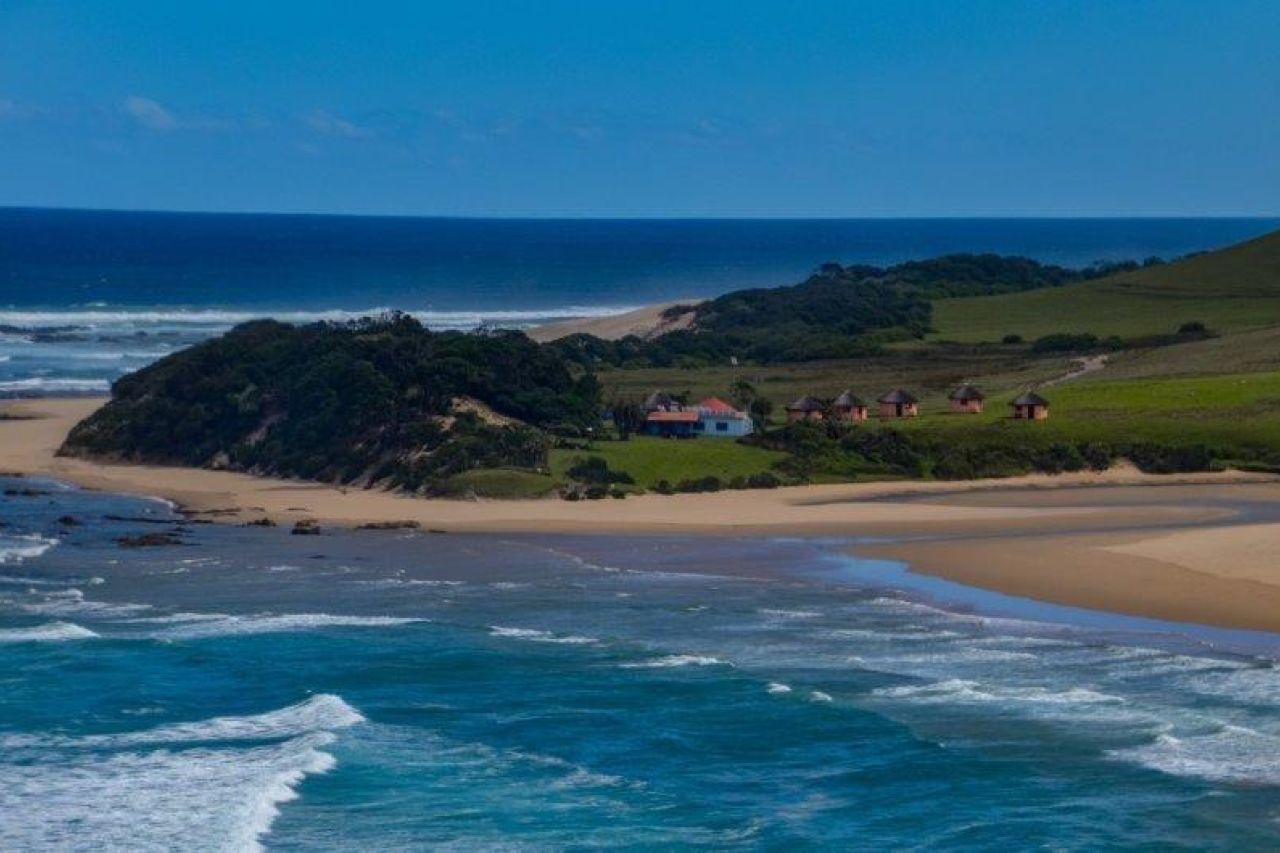
1. Coastal MPAs in the area
Due to the conservation importance and uniqueness of this area there are four MPAs adjacent to the proposed survey area. These include, from south to north – Amathole Offshore (extends 50km offshore), Dwesa-Cwebe (extends 14km offshore), Hluleka (extends 11km offshore) and Pondoland (extends 10km offshore). Each of these MPAs protects unique marine biodiversity with a high number of endemic species. The impacts of the sound from the seismic survey travel great distances through water, meaning that the marine life in the MPAs may be impacted, especially in the Amathole Offshore MPA, one of the newest of South Africa’s MPAs and home to unique canyons, deep water corals and gravel habitats that are home to endemic seabreams that occur nowhere else on Earth.
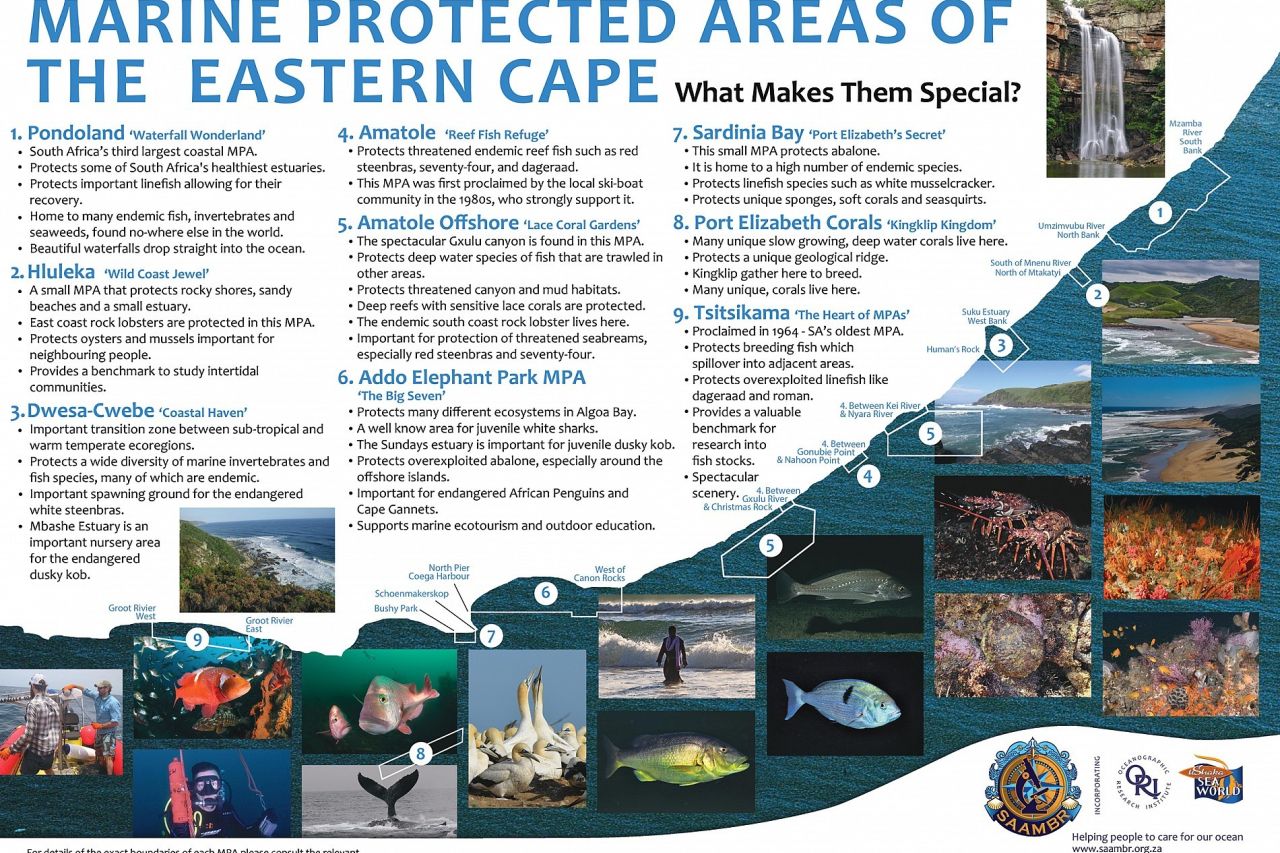
2. The tourism potential of the area will be compromised
The area is also home to one of the most pristine and unspoilt coastlines in the world, an area with unparalleled potential for well-planned ecotourism. This would create sustainable jobs for local community members in an area that sorely needs these opportunities. This area is world-famous for the annual sardine run – which attracts tourists from around the world, while the ecotourism potential of the MPAs in the area is just starting to be realised. Ecotourism would provide secure jobs over a longer time period than oil and gas extraction and without destroying the cultural way of life of the region.

3. The area has high levels of biodiversity and endemism
The area is biologically very diverse with a wide variety of algae, invertebrates, fish, sea birds and marine mammals. It is an important transition zone between the warmer sub-tropical and the cooler temperate coastal regions. It also had a high level of endemism – many of the species found in this area are not found anywhere else in the world. Deep-water habitats (> 500 m), in particular, are largely unexplored ecologically, so we do not know exactly what occurs or what ecological processes take place there.
4. The Agulhas Current off the Wild Coast is one of the most powerful and dangerous western boundary currents in the world
We have serious concerns about the risks of drilling for oil offshore of the Wild Coast, given that this region is influenced by one of the fastest-flowing and most powerful oceanic currents in the world - the Agulhas Current. It carries over 75 million cubic metres per second - more than 350 times the flow rate of the Amazon River. This current is not static – it has meandered up to 100km in width, and while it generally flows from north to south, current reversals are not uncommon, particularly in deeper water. Large-scale eddies peeling off the current complicate the flow, with offshore water frequently reaching our coast. Because this current is so powerful any attempts to contain an accidental spill or normal operational spill would probably be unsuccessful. While, internationally, the risk of a catastrophic blowout (= large-scale oil spill) is rated as very low by environmental impact assessments, this does not consider the greatly increased risks posed by the harsh, unique, physical environment found off the Wild Coast (as its name implies). Importantly, the potential impacts of developing and running shore-based facilities for the processing and transport of oil and gas, should they be found in viable quantities, have not yet even been considered.
5. We should not be exploring for new fossil fuels
The global market is moving away from fossil fuels given the catastrophic effects of human-induced climate change. Indeed, if South Africa and the world are to meet the goals set by COP26 which has recently concluded in Glasgow, to limit global warming to less than 1.5°C, we must stop relying on fossil fuels. In fact, the international community has just pledged over R131 billion to help South Africa decrease its reliance on fossil fuels. The potential short-term, non-sustainable benefits to be gained from oil and gas are largely outweighed by the environmental risks posed by exploring for, and using these non-renewable energy resources, especially along this vulnerable coastline. It is our opinion that the best way forward for environmental sustainability and local job creation is to expand technology that makes use of renewable energy.
